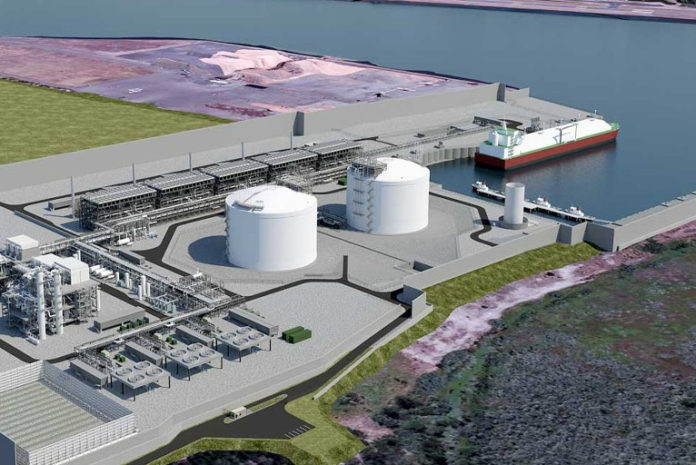On Monday July 6th, U.S. Secretary of Energy Dan Brouillette announced the issuance of a final long-term order authorizing the export of domestically produced liquefied natural gas from the proposed Jordan Cove Liquefied Natural Gas Terminal in Coos Bay, Oregon.
In 2014, the Department of Energy conditionally approved exports from the proposed Terminal. The Federal Energy Regulatory Commission authorized the siting, construction, and operation of the Jordan Cove LNG Terminal and the related Pacific Connector Pipeline in March of this year.
The Jordan Cove Energy Project, which includes a 230 mile pipeline from Malin, Oregon, to an LNG terminal in Coos Bay, has faced relentless opposition since the proposal was first introduced in 2004.
The Jordan Cove LNG Terminal, including the Pacific Connector Pipeline, is expected to create over 6,000 jobs during peak construction and may generate up to $100 million in state and local tax revenue annually.
“Today’s export authorization for Jordan Cove, the first U.S West Coast LNG project, will ease access to further position the U.S. as a top supplier of LNG around the world,” said Secretary Brouillette. “Today’s issuance to Jordan Cove serves to further expand opportunities for U.S. LNG abroad, particularly in the growing markets of Asia, and encapsulates what the Trump Administration has been working hard on for the past three years – providing reliable, affordable, and cleaner-burning natural gas to our allies around the world.”
Under the order issued today, Jordan Cove Energy Project L.P., owned by Canada’s Pembina Pipeline Corporation, will have the authority to export up to 1.08 billion cubic feet per day of natural gas as LNG. The Project’s natural gas will be sourced from both Canada and the United States and will be liquefied at the Jordan Cove LNG Terminal. The LNG will be exported by ocean-going vessel to any country with which the United States does not have a free trade agreement and with which trade is not prohibited by U.S. law.
“As we work to overcome the COVID-19 pandemic, LNG exports are going to be one of the building blocks toward the United States’ economic recovery,” said DOE’s Assistant Secretary for Fossil Energy Steven Winberg. “The U.S. has exported LNG to 38 countries, with this authorization to Jordan Cove, the United States can look to increase that number with expanded geographic coverage for LNG exports into key importing markets in Asia, providing enhanced economic opportunities both here in the U.S. and globally.”
The United States is currently in its fourth consecutive year as a net exporter of natural gas, and it has quickly become one of the top global exporters of LNG.


















